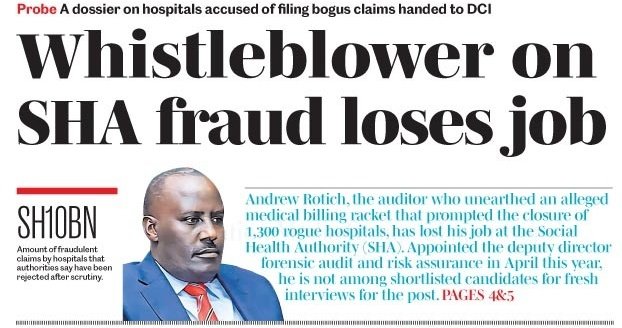Rotich’s audit had revealed alarming irregularities, including duplicate claims, inflated hospital bills, and instances where payments were made for patients who never received treatment. His findings exposed how corrupt networks were siphoning millions from public coffers at the expense of ordinary Kenyans seeking medical care.
Instead of being celebrated for his work, Rotich has now lost his job, a move that has sparked outrage among civil society groups and anti-graft campaigners. They argue that his dismissal sends a chilling message to other whistleblowers who may fear retaliation for speaking out against corruption.
SHA officials have maintained that Rotich’s termination was based on “administrative reasons,” but they have not provided clear details on the decision. Activists, however, believe the move was politically motivated and aimed at silencing voices pushing for accountability within the health sector.
The development has reignited debate on the protection of whistleblowers in Kenya, with calls for stronger laws and mechanisms to safeguard those who expose corruption. For now, Rotich’s dismissal raises fresh questions about the government’s commitment to fighting graft in one of the country’s most sensitive sectors—healthcare.



